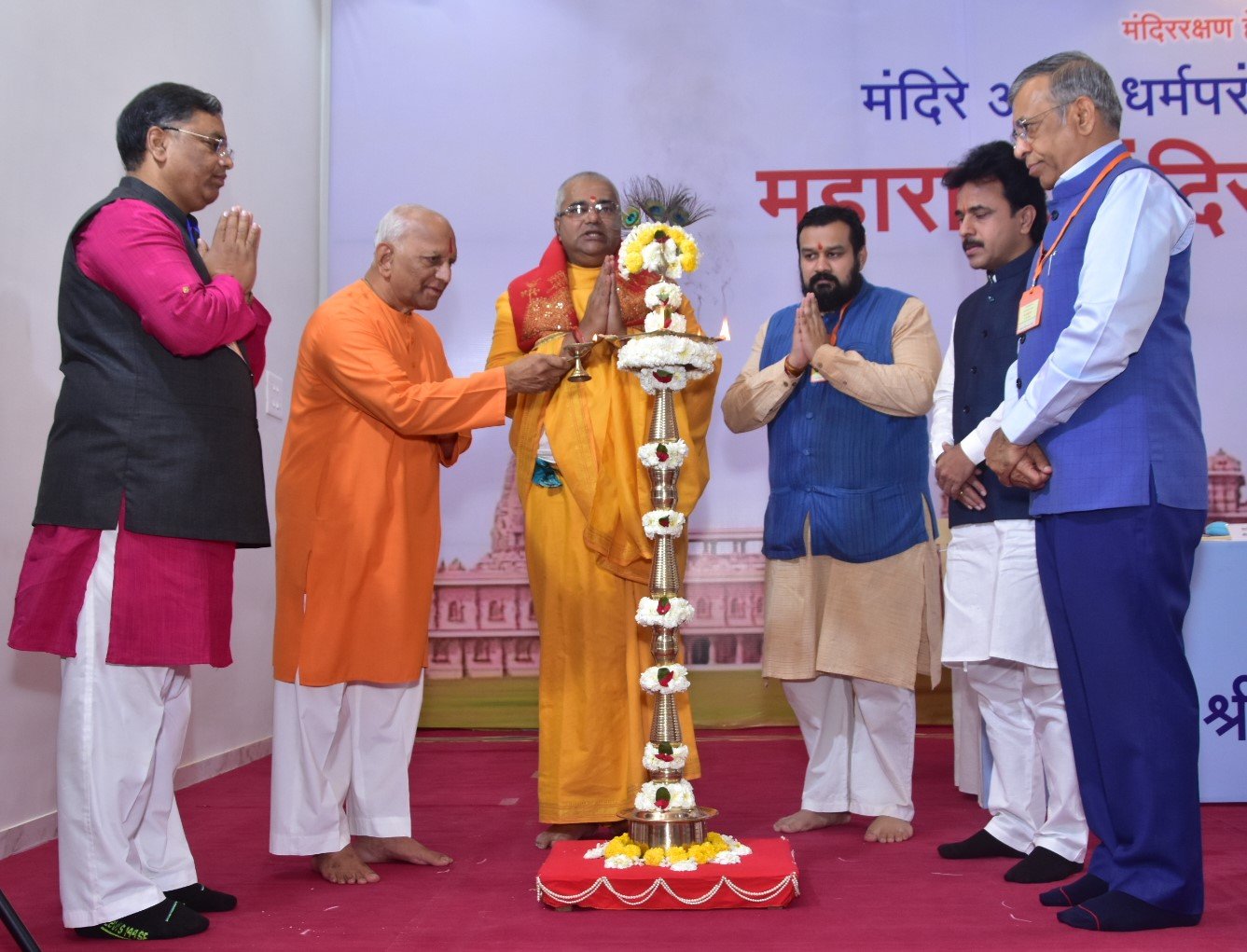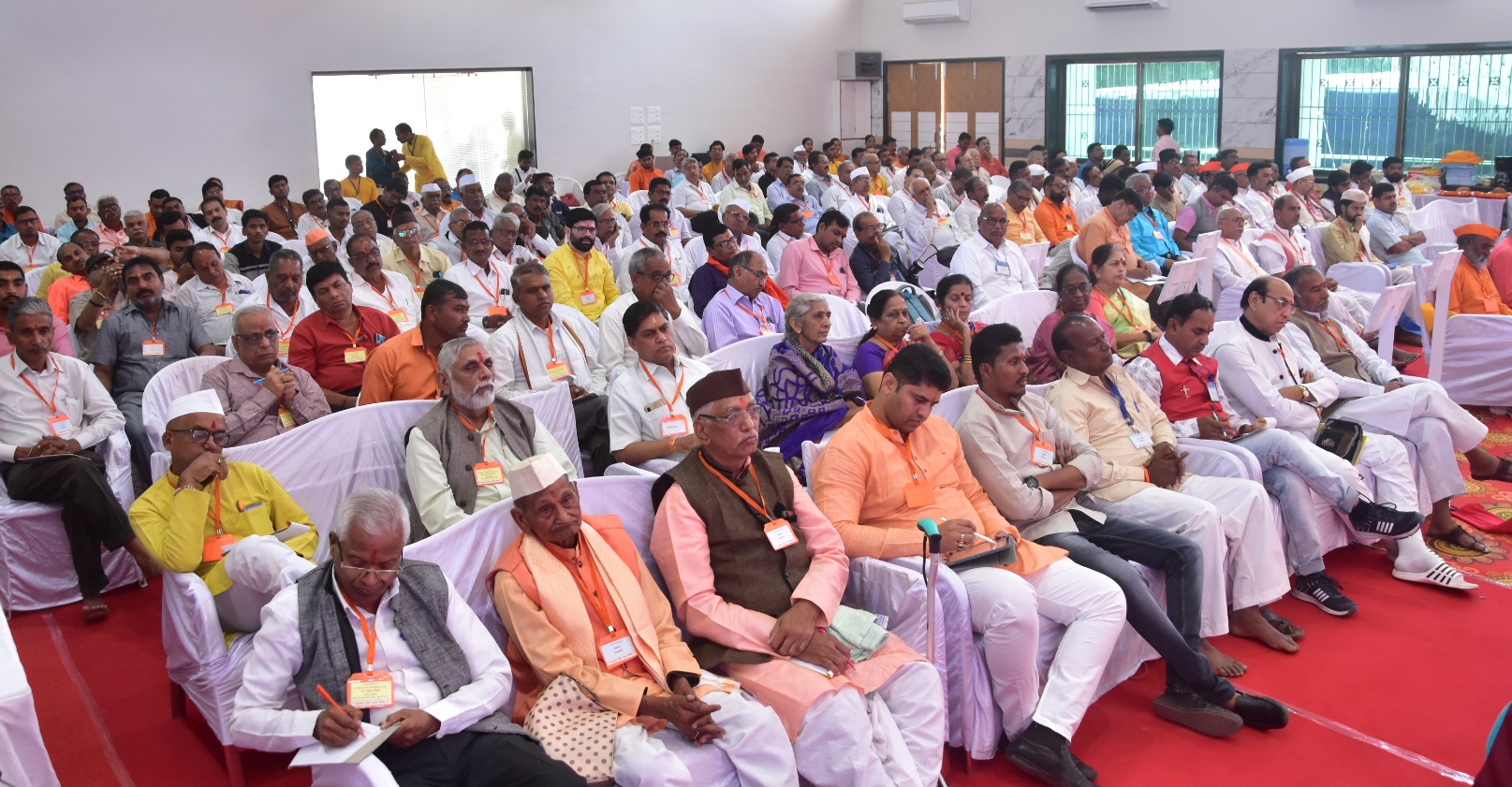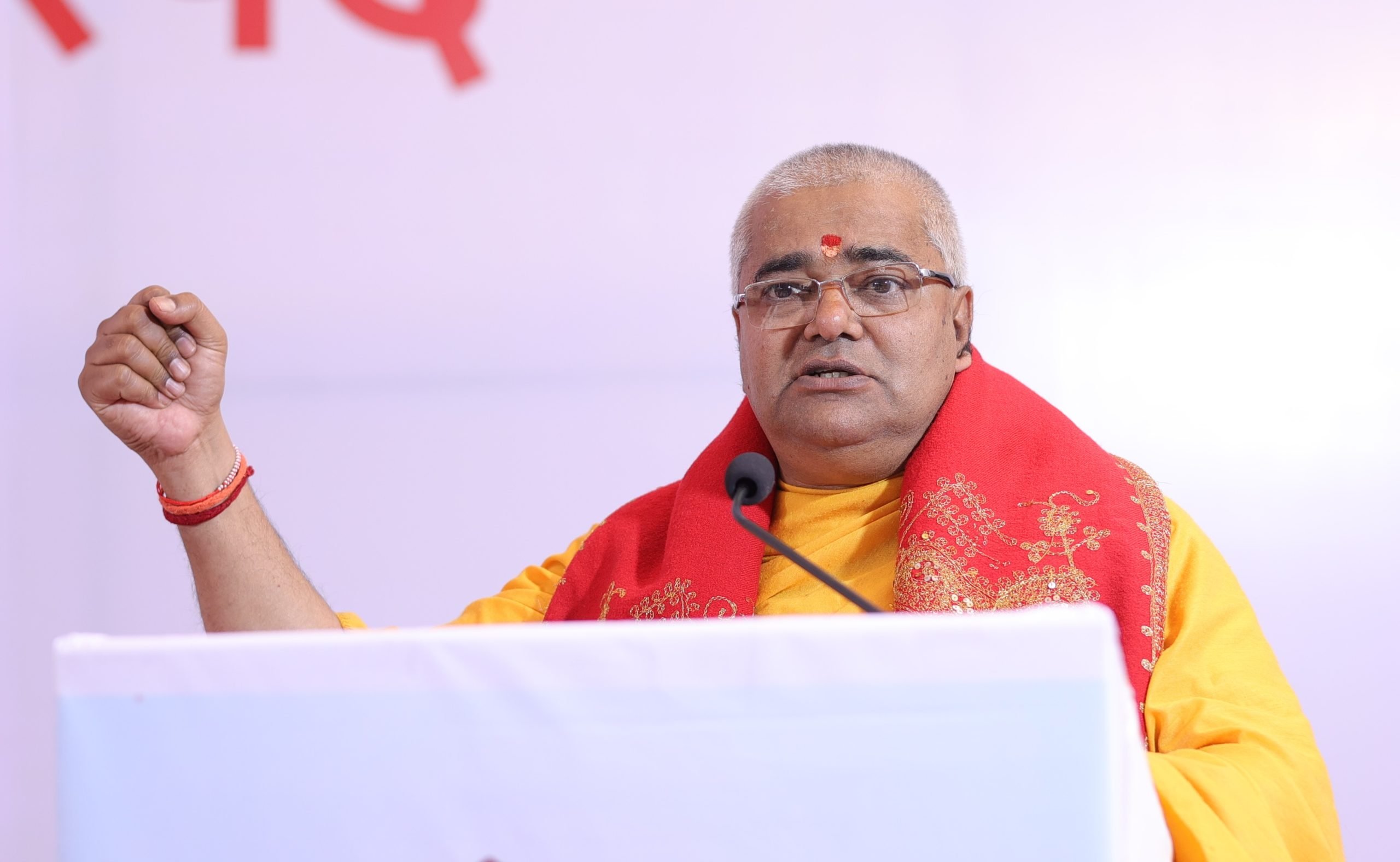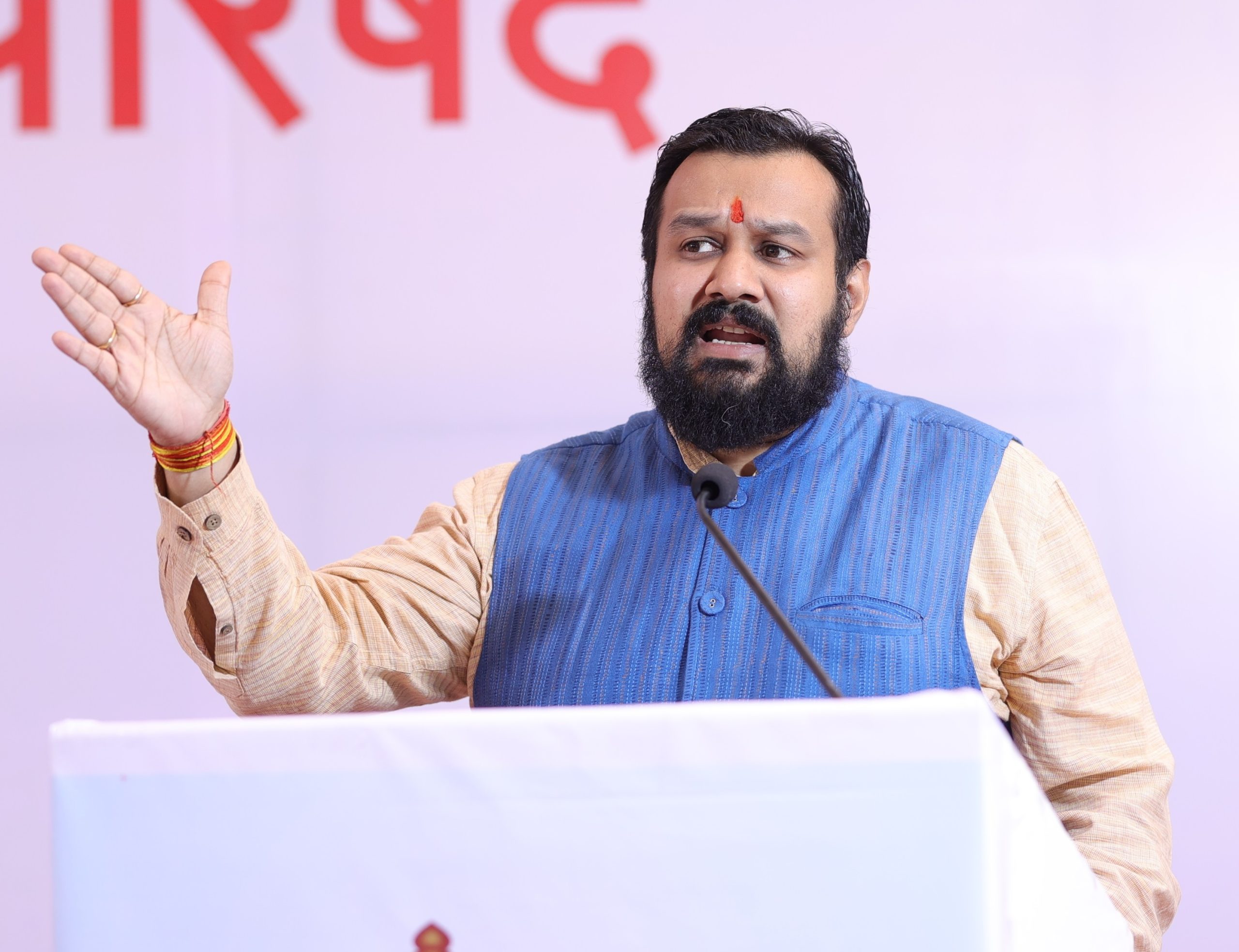There is a need to teach temple management in India ! – Ashok Jain, President, Padmalaya Devasthan, Jalgaon
Jalgaon – Dharma cannot be separated from temples. The health of any institution depends on its management, but there is no course in educational institutes that teaches temple management in India. This ‘Mandir Parishad’ is trying to do that task. Our places of pilgrimage and temples have ancient traditions. It should be remembered that these are not tourist places. Temple trustees need to take care of temples like parents. There has to be unity among trustees to solve the problems faced by the temples and in this context, a common agenda will be drawn through this Mandir Parishad, expressed Mr Ashok Jain, the trustee of ‘Shri Padmalaya Ganesh Devasthan’ and the President of Jain Industrial group.

‘Maharashtra Mandir-Nyas (Temple Trust) Parishad’, a two-day State-level conference has been jointly organised by Hindu Janajagruti Samiti (HJS) and ‘Shri Ganapati Mandir Devasthan Vishwasta Mandal’ to discuss issues related to the protection of temples and Dharmik traditions. Mr Jain addressed the opening session of this conference. The historical conference began with the lighting of the lamp by the participating dignitaries. Advocate Vishnu Shankar Jain, who fought Kashi’s ‘Gyanvapi’ case in the Supreme Court, Acharya Mahamandaleshwar Mahant Shri Sudhirdas ji Maharaj of Shri Kalaram Mandir, Shri Vijaysinghraje Jadhav of Shri Balaji Devasthan, Deulagaoraja, Sanatan Sanstha’s Sadguru Nandkumar Jadhav, and Mr Ramesh Shinde, the National Spokesperson of Hindu Janajagruti Samiti were present.

More than 250 representatives of various temples from across the State are participating in this conference. There will be discussions on different issues such as – Unification of temple representatives, Problems faced by temple priests and their solutions, Hindu unity through temples, Good Management of Temples, Revival, cleanliness and financial problems of temples, etc. In his introductory address, Sanatan Sanstha’s ‘Dharmaprasarak’ Sadguru Nandkumar Jadhav said that holding such a conference was an auspicious occasion for Hindus. BJP’s local MLA, Mr Suresh Bhole was also present. MLA Mr Bhole said, in Courts oath is taken by placing hand on ‘Bhagawadgeeta’, but Bhagawadgeeta is not taught in schools or colleges. There is a need to change this situation.
Temple trustees must unite to protect the Dharmik traditions of temples ! – Mahant Shri Sudhirdasji Maharaj, Shri Kalaram Mandir, Nashik

There must be efforts to maintain the sanctity of temples. Temples across the nation are facing problems. They are being taken over by the Government and non Hindus are being appointed in them. This is destroying temple traditions. Traditional practices of worship must resume. Temple funds are being used for purposes other than those related to Dharma. Acharya Mahamandaleshwar Mahant Shri Sudhirdasji Maharaj of Shri Kalaram Temple in Nashik asserted that the conference will unite temple trustees for the protection of religious traditions in temples.
The fight for the Kashi Vishwanath temple is a fight for the protection of Hindu culture ! – Vishnu Shankar Jain, Advocate, Supreme Court

The attacks on Hindus began with the attacks on Hindu temples. In numerous places including Ayodhya, Mathura, and Kashi, temples and idols of Deities were destroyed and mosques were built on top of them. The Kashi Vishweshwara temple was destroyed thrice. Chhatrapati Shivaji Maharaj’s last wish was to liberate the Kashi Vishweshwar temple. The day when this wish materialises is on the horizon now. Hindus should liberate all these temples. Advocate Vishnu Shankar Jain asserted that the fight for the Kashi Vishwanath temple is a fight for the protection of Hindu culture.
Public sector undertakings are being privatised, then why are Hindu temples being taken over by the Government ? – Ramesh Shinde, National Spokesperson, Hindu Janajagruti Samiti

The series of attacks against Sanatan Dharma has continued well into this century too. A temple is not only a Deity’s abode, it is a school, a Court, and also a place for healing. Earlier, universities functioned under the guidance of temples. Hindus were imparted knowledge there. The Mughal invaders destroyed the temples and looted the wealth, but, due to the vast wealth that the temples possessed, the wealth of knowledge continued to flow unhampered. This was recognised by the British as a stumbling block in their plan to convert Hindus through missionary run schools. So the British started taking over the functioning of temples to gain control over the wealth in the temples. India became independent in 1947; but the temples did not become independent. Today, the ‘secular’ Government has over 4 lakh temples under its control, going against a Supreme Court order. Hindu Janajagruti Samiti National Spokesperson Mr Ramesh Shinde asked why temples were being taken over by the Government while the same Government was bent on privatising public sector undertakings. Temples like Shirdi Devasthan, Shree Tuljabhavani Devasthan, Shree Mahalakshmi Devasthan and various other temples which are under Government control have seen tremendous corruption. Mr Shinde said that the representatives of every temple should try to prevent the Government from taking over the temples.




